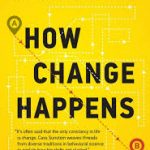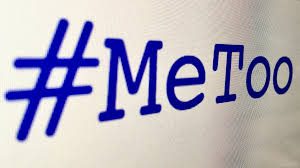What are some of the terrible things that can happen in your life? At a scholarly talk that I attended, the speaker had a slide that offered some answers. They included, for example, contracting a deadly disease, killing yourself, not being able to find employment, and…not ever getting married.
I was horrified. I looked around the room – no one else seemed to be reacting. When it came time for questions, I purposefully waited and waited, hoping someone else would say something. No one ever did. So I raised my hand and ranted.
I was upset not just by the casual, unapologetic suggestion that staying single may well be a fate worse than death (it was listed right alongside suicide), but also by the fact that in a packed lecture hall, no one else seemed to notice or care.
But when I walked back to my car with a friend, it turned out that she did notice. And by the time I got home, I had an email from someone else who was at the talk – she noticed, too. At least two other people were unhappy about this instance of singlism (the stereotyping, stigmatizing, and discrimination against people who are single) but neither said so in public.
I ruminated about this for a while, then (mostly) let it go. But I just got a copy of the new book, How Change Happens by Harvard Law Professor Cass Sunstein, and now I wonder whether my experience points to the potential for something transformative to happen with regard to the rights of people who are not married.
The Psychology of #MeToo
In the book and in an article, Sunstein explains why social movements such as #MeToo seem to come from out of the blue. It was almost as if one day, sexual harassment and sexual assault were private matters that few people experienced or complained about, then the next, personal declarations of those experiences, along with expressions of outrage, were everywhere.
It wasn’t that the actual experience of sexual harassment or sexual assault had suddenly increased. The experiences were already there, in greater numbers than most people had ever realized. But women were keeping their stories to themselves. For the most part, they were not witnessing other people speaking out, so they may have thought their own experiences were more unusual than they were in fact. Maybe, too, they were afraid to speak out. Perhaps they were worried about being disbelieved or mocked or ostracized or punished.
All those people who were concealing their personal experiences were primed to be unleashed. And unleashed they were. In Sunstein’s telling:
“Shortly after the Harvey Weinstein sexual misconduct scandal broke in October 2017, actor and activist Alyssa Milano sent a tweet to her followers asking them to share their stories of harassment or assault by replying “me too.” Within 24 hours, 45 percent of all U.S. Facebook users had friends in their networks who had posted “me too.””
What followed, in short order, was genuine social change. More and more women spoke out about their experiences and were taken more seriously than they ever had been before. Blockbuster articles were published in prestigious newspapers and magazines. High-profile men lost their jobs.
Sunstein points to three key factors implicated in social movements that happen suddenly. The first is “preference falsification,” in which many people are silencing themselves. They are concealing what they have experienced, how they feel about it, and what they wish would happen.
Next, people need to speak up. Some people are so invested in the issue, they need no social support. They will say what they think. Others need to see at least one other person describe the experiences and feelings they had been keeping to themselves. Still others will need to observe more than one other person – maybe many, many more. In the #MeToo movement, the sheer number of people who spoke up made it easier for even some of the most reluctant secret-keepers to do the same.
Also important is the third factor: “who, if anyone, is seen to have done what.” Not all disclosures will be noticed. And not everyone who discloses is going to be equally influential.
Singles, Too? Can Something Like #MeToo Happen with Singlism?
Sunstein believes that similar dynamics occurred in other social movements, such as the civil rights movement of the 1960s, the women’s movement, the movement for LGBT rights, for disability rights, and the pro-life movement. In all those instances, “preexisting beliefs, preferences, and values” had gone unexpressed and unrecognized.
What about a singles movement?
The ways in which single people are stereotyped, stigmatized, marginalized, and discriminated against are far-reaching. They range from the small stuff, such as the slights of everyday life, to the really big things, including all the federal benefits and protections granted only to people who are legally married.
Are there vast swaths of people who have experienced singlism, who recognize it for what it is, and who are privately seething over it? Or if not seething, at least feeling pretty annoyed? I’m not just talking about single people. Married people can also object to the devaluing of single people and the discrimination against them.
I’m not very optimistic that we are on the cusp of a social movement, though I would like to be. Research suggests that one of the ways that singlism differs from other more familiar isms such as racism and sexism is that it is more likely to go unrecognized. The scholar who listed lifelong singlehood as one of the awful things that can happen to people, alongside suicide and serious illness, didn’t seem to think there was anything wrong with her slide. And she is a brilliant, accomplished, celebrated scholar.
When I write about examples of singlism, it is almost inevitable that someone will dismiss those instances as no big deal. Sunstein has addressed that reaction in a different context:
“If a victim of sexual harassment genuinely believes that “it’s not a big deal,” it might be because it’s most comfortable or easiest to believe that it’s not a big deal.”
Currently, there is probably more social support for blowing off singlism as “no big deal” than for acknowledging it. I’ve tried to make the case that singlism can indeed be quite a big deal. Some people get it, but we are far from the point where people who practice singlism are held to account for it.
 How Change Happens is not a how-to book, but Professor Sunstein does offer some suggestions along the way. I’ll mention just this one:
How Change Happens is not a how-to book, but Professor Sunstein does offer some suggestions along the way. I’ll mention just this one:
“…would-be reformers would do well to create forums, whether in-person, over-the-air, in cyberspace, or in print, in which people with similar inclinations speak frequently with one another and can develop a clear sense of shared identity.”
I think we do a bit of that on the Unmarried Equality Facebook page, as well as in the Fairness for Single People group and the Community of Single People. Even in those forums, though, some people jump in and try to shame those who are describing and objecting to singlism. Nonetheless, I hope we persist.
[Notes: (1) The opinions expressed here do not represent the official positions of Unmarried Equality. (2) I’ll post all these blog posts at the UE Facebook page; please join our discussions there. (3) For links to previous columns, click here.]



